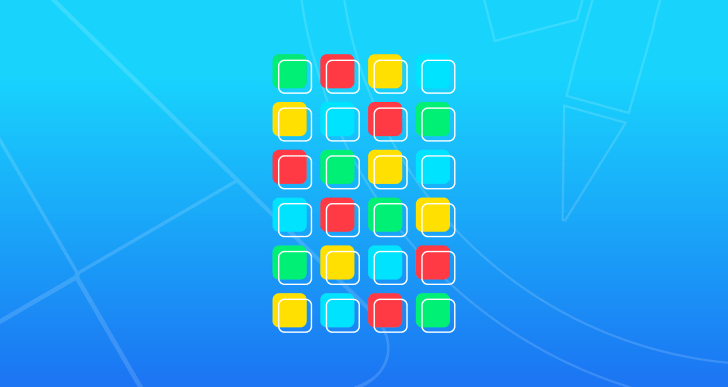Welcome back to This Week in Apps, the Extra Crunch series that recaps the latest OS news, the applications they support and the money that flows through it all.
The app industry is as hot as ever, with a record 204 billion downloads in 2019 and $120 billion in consumer spending in 2019, according to App Annie’s recently released “State of Mobile” annual report. People are now spending 3 hours and 40 minutes per day using apps, rivaling TV. Apps aren’t just a way to pass idle hours — they’re a big business. In 2019, mobile-first companies had a combined $544 billion valuation, 6.5x higher than those without a mobile focus.
In this Extra Crunch series, we help you keep up with the latest news from the world of apps, delivered on a weekly basis.
This week, we’re looking at the further impact of the coronavirus on the app industry, which is now leading to more major event cancellations — including, as of this week, Google I/O and SXSW. That begs the question, will WWDC be next? And what will that mean for developers who rely on the annual event to make those invaluable face-to-face connections? We’re also looking at the revised App Store review guidelines and what that means for developers, as well as Walmart’s plan to dramatically change its app strategy, Robinhood’s bad week, the launch of a new Spotify competitor from the makers of the world’s most viral app, TikTok and much more.
Headlines
Apple changes the rules
![]()
Apple this week alerted developers to a new set of App Store review guidelines that detail which apps will be accepted or rejected, and what apps are allowed to do. The changes to the guidelines impact reviews, push notifications, Sign in with Apple, data collection and storage, mobile device management and more, the company says. Some of the more high-profile changes include the ability for apps to now use notifications for ads, stricter rules for dating and fortune-telling apps and a new rule that allows Apple to reject apps that help users evade law enforcement, among other things.
Banning police-spotting apps puts into writing Apple’s decision around its ban of the crowdsourced mapping app HKmap that was used by pro-democracy protestors in Hong Kong to evade police. Initially, the app had been approved, but was pulled a day after Apple was criticized by Chinese state media who said the app allowed “rioters” to “target and ambush” police. Still, Apple’s language is vague enough that it gives the company the ability to make decisions on a case-by-case basis, as it says the app will be banned if it’s used to “commit” or “attempt to commit crimes.”
Apple will also now require developers advertising with push notifications to offer an opt-out. And it adds dating and fortune-telling apps to its list of apps the company believes have oversaturated the App Store — a signal that it will watch these apps more closely for spam.
Sign in with Apple, iOS 13 SDK deadlines near
In addition to the revised guidelines, Apple also reminded developers this week that they’ll soon have to have “Sign in with Apple” implemented if they offer a way to log in to their app. Developers will also have to use the iOS 13 SDK to submit or update apps. Both deadlines are on April 30, 2020. The company noted that iOS 13 is now running on 77% of all iOS devices introduced in the last four years, worldwide.
Coronavirus cancels Google I/O… is WWDC next?
The novel coronavirus outbreak has taken down a number of major events in the tech industry, including Mobile World Congress, Facebook’s F8, Nvidia’s GTC developer event, Google Cloud Next, Adobe Summit and others. Now we’re coming up on two of the year’s most important events for app developers: Google I/O and Apple’s WWDC.
This week, the first shoe dropped on that front: Google canceled I/O. The event was scheduled to run May 12 to 14 at the Shoreline Amphitheatre in Mountain View, and is typically where Google announces its latest developer tools and a number of consumer-facing features and sometimes, devices. Last year, the Pixel 3a debuted at Google I/O, for example.
With cancellations piling up, everyone is waiting to see what Apple will do about WWDC. While the company can stream its keynote and developer sessions online — in fact it does already — the real loss will be the networking that takes place at events like this, as well as the hands-on labs and face time with Apple engineers.
This one-on-one time isn’t just good for app developers, it’s a chance for Apple to hear from people who use their tools and platforms about what’s working and what’s not. If anything, WWDC is a competitive advantage for Apple. Because the company isn’t always transparent about its decisions and reasoning when it comes to the App Store, the event is a special time when developers can interact with Apple staff directly. If a developer is having a problem with a specific feature, for example, they can actually talk to the engineer who built it. It’s also a great place to meet up with developers from around the world and make connections that can further a business’s goals or developers’ own careers.
Twitter is testing Stories

Better late than never? Or would “never” be too soon? Twitter this week made what amounts to one of the biggest product changes since its expansion from 140 characters to 280. The company says it’s testing a new Stories-like feature called “Fleets,” initially in Brazil. The Fleets will appear at the top of users’ homepage on Twitter for iOS and Android as rounded icons and allow people to post content that disappears in 24 hours. Fleets are public in nature, but won’t circulate through Twitter (unless someone screenshots them), as they’re not indexed in Search or Moments, and can’t be retweeted or replied to, except through DMs if the user has them open.
TikTok’s parent launches a music streaming app, Resso
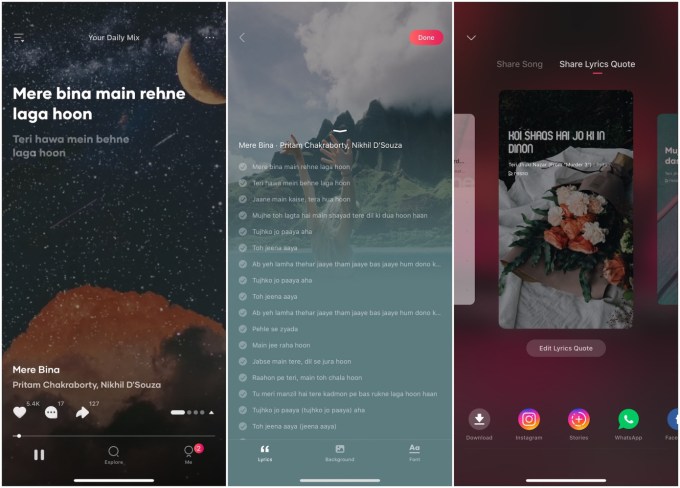
TikTok is already influencing the music charts and making songs go viral. Now, TikTok’s parent company, Beijing-based ByteDance, is putting more skin in the game with the launch of its own music streaming app, Resso. The new app competes with local apps like Gaana and JioSaavn, as well as global apps like Spotify, YouTube Music and Apple Music. However, Resso is quite different from its rivals.
Though freemium like Spotify, the new app bills itself as a social streaming app and encourages users to share lyrics, comments and other user-generated content with each other, along with full-length tracks they can also consume and share. In addition, music begins playing as soon as you open the app. The app has deals with Sony Music Entertainment, Warner Music Group, Merlin and Beggars Group and other big Indian publishers, but lacks a deal with Universal Music at launch.
Google announces its new LA-based Stadia Games & Entertainment Studio
Google’s cloud gaming service Stadia hasn’t had the most enthusiastic response right out of the gate, but the company sees its long-term potential. One of the ways Google is aiming to differentiate itself is by offering Stadia players exclusive games. On that front, Google this week announced a new Stadia Games and Entertainment studio in LA, headed by industry vet, Shannon Studstill. Prior to joining Stadia, Studstill led Sony’s Santa Monica Studio, home to the award-winning title “God of War.” According to Google, the new Playa Vista studio will focus on delivering “exclusive games, using new gameplay mechanics, creative ways to play together and unique interaction models that we’re just starting to explore.” The company isn’t yet revealing titles, however. Google Stadia also previously acquired Typhoon Studios in Montreal.
In other Stadia news, 4K gameplay began rolling out to Stadia on the web this week. It was previously limited to Chromecast Ultra and televisions. To confirm you have it, you can open the in-game menu — Shift + Tab or the Stadia button on the Controller — and click “Connection,” advises 9to5Mac, in a report about the expansion. Then, under “Data usage” status, you’ll see a mint green “4K” icon.
WhatsApp finally gets a dark mode
At last. Years after other top social apps embraced users’ preference for darker backgrounds and themes (which save battery on OLED-screened phones), WhatsApp this week introduced its long-awaited dark mode. The new setting will make it easier on the eyes on low-light environments and will help prevent those awkward moments where your phone lights up the room, notes Facebook in a blog post. Users on Android 10 and iOS 13 can enable dark mode in the system settings. On Android 9 and below, the option will be in WhatsApp Settings under Chat/Theme/Dark. The new feature is still rolling out, so you may not yet see it.
The demand for dark mode is only partly about aesthetics. Users also need their apps to support darker themes for power-saving purposes and because time spent on phones continues to increase. It’s almost inexcusable that an app this widely used has put off dark mode support for this long. Despite WhatsApp’s claims that it worked to find a way to ensure dark mode remained readable, nothing about painting the background a darker color or changing fonts should require years of work.
Facebook rewrites Messenger
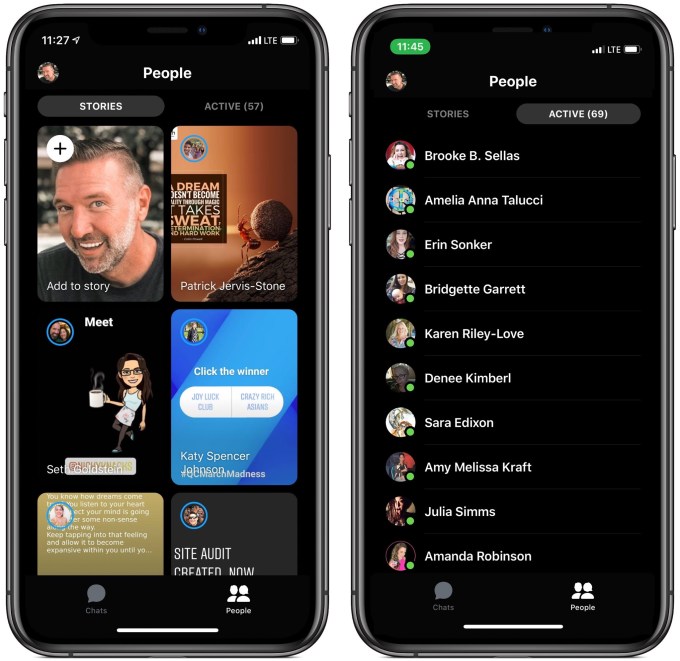
In other major messaging news, Facebook this week launched a rewritten version of its Messenger app that’s now 25% of its prior file size and twice as fast. This will allow the app to better compete in key emerging markets where issues like storage space and access to high-speed connections may have otherwise turned users toward more lightweight messaging app experiences. Facebook says it reduced Messenger’s core code by 84% — from 1.7+ million lines of code to 360,000. In part, this was aided by the fact that Facebook redesigned the app to get rid of the Discovery experience and demote chatbots to instead bring the focus back to people and stories.
Apple’s App Store celebrates women throughout March
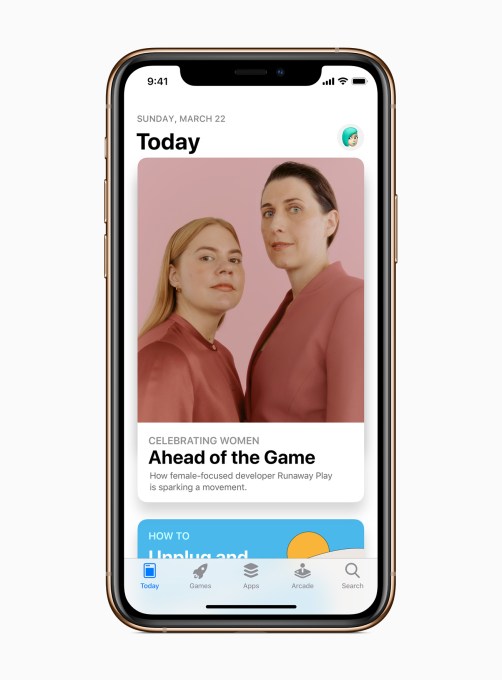
Apple is celebrating International Women’s Day all month long across its stores and products. On the U.S. App Store in particular, Apple will feature an App of the Day and Game of the Day highlighting the work of female developers, designers and entrepreneurs, every day in March. Already, it has showcased apps like female-focused investing platform Ellevest’s inspirational podcast network app Seneca Women; meditation app Stop, Breathe, & Think; savings app Qapital; and female-founded political donations tracker Goods Unite Us; and others. The apps are labeled with a “Women’s History Month” badge on the App Store’s Today tab. App Store editorial content throughout the month will also focus on helping to highlight the women building apps and games.
Epic Games cancels Unreal Fest after exiting GDC, also delays Fornite tournaments
Epic Games, makers of Fortnite, had already pulled out of the Game Developers Conference in March in San Francisco, before the event was officially canceled. Now the company has decided to cancel its Unreal Fest Europe 2020, as well. The latter event was scheduled to be held in Prague from April 29-May 1 and is not currently being rescheduled.
“Here at Epic, we were excited about hosting Unreal Fest Europe 2020 in Prague,” the company said. “Due to uncertainty around health concerns and travel, we have made the difficult decision to cancel this year’s event.”
Also canceled, but unrelated, are Epic’s Fortnite tournaments. The company this week announced it won’t host any more tournaments with cash prices until it can address performance issues impacting both clients and servers.
Top 10 U.S. astrology apps made $40 million in 2019, up 65% from 2018

According to new data from Sensor Tower this week, the top 10 astrology apps in the U.S. market grew their revenues by 64.7% in 2019 to reach $40 million. That’s up from $24.1 million in 2018 and just $7.7 million back in 2016. The biggest app in this space was Astrology & Palmistry Coach, which generated 35.3% of the top 10’s revenue for the year, or approximately $14 million. Meanwhile, three apps have made the top 10 list each year since 2016: Zodiac Touch, whose revenues grew 75% from 2016 to 2019, plus Psychic Text and Purple Ocean.
Newcomers in 2019’s top 10 include FortuneScope, Horoscope & Palm Master and Astroline. Two of these tap into the mobile phone’s camera to automate palm readings — a feature none of the top apps offered in 2016 and an indication of how these apps are modernizing to reach a young, tech-savvy audience.
Ironically, days after the report came out, Apple released its new App Store Guidelines that put fortune-telling apps on notice. Apple said it doesn’t need any more apps of that nature and those that enter will need to offer a unique, high-quality experience if they don’t want to be rejected as spam.
TikTok rival Byte prepares to start paying creators
Byte has fallen out of the App Store’s top charts and has dropped to No. 157 in Social Networking following its debut earlier this year, which saw it quickly accumulate more than a million downloads, despite content concerns and spam. But Byte’s longer-term prospects are still very much hit-or-miss at this point. The company, however, is counting on a business model that rewards creators for their contributions to help keep its app relevant even in the face of massive competition from TikTok, which has more than a billion downloads. This week, Byte said it’s going to start inviting creators to join its Partner Program. Every 120 days, Byte will establish a Partner Pool fund that will be paid out to creators every 30 days over four months. The first pool, kicking off on April 15, is $250,000 and will be split by up to 100 creators.
While it’s good that creators have an immediate path to earn money on Byte, splitting a pool of money like this isn’t a viable income stream — and it pales in comparison to what creators can charge brands for sponsored posts on TikTok or YouTube. One influencer agency told Business Insider earlier this year that it charges brands $0.01 to $0.02 for each sponsored video view on TikTok. And on YouTube, brands are charged more — $0.03 to $0.08 per view. TikTok creators may also set flat rates on their sponsored posts, with top creators earning $20,000 to $30,000 per post, according to a recent report from The Hollywood Reporter. Meanwhile, Hollywood stars can earn as much as six figures.
Mobile-only Netflix competitor Quibi reveals its launch slate
Quibi, a mobile app that wants to become Netflix for the smartphone generation, will arrive in just a month. No one would probably pay attention to an effort like this if it wasn’t headed by Jeffrey Katzenberg, led by Meg Whitman, backed by now $1.75 billion dollars (not a typo) and touting shows with top-tier Hollywood talent. While the company has been busy making announcements about its green-lit series and deals, on Friday it revealed what will actually be available on day one.
Its launch slate includes 50 shows featuring stars like Liam Hemsworth, Christoph Waltz, Sophie Turner, Idris Elba, Chrissy Teigen, Will Forte, Eva Longoria, Andy Garcia, Kristen Bell, Nick Jonas, Jennifer Lopez, Tracy Morgan, Aaron Rodgers, Yara Shahidi, Gabriel Iglesias, Anthony Davis, Kevin Hart, Karlie Kloss, Chance the Rapper, Nicole Richie and others. The shows span genres from Quibi’s “Movies in Chapters” format to daily essentials like news. The company believes that it’s the first to leverage mobile devices and their unique capabilities for storytelling, which will revolutionize the industry. But so far, its biggest trick is (a very nice) way of moving between watching content in horizontal and portrait modes, as well as a horror show that can only be viewed at night.
Walmart to merge its apps
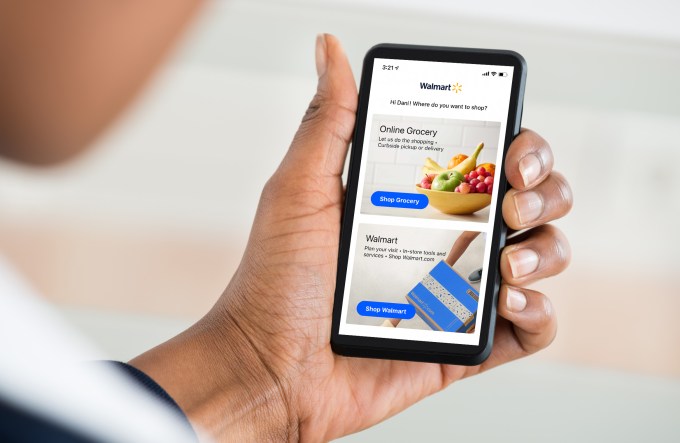
Walmart is looking to hook more consumers on its online grocery shopping experience by adding Walmart Grocery to its main Walmart mobile application. For years, the retailer has operated two separate apps: its flagship Walmart app (the blue one) and its separate Walmart Grocery app (the orange one). This meant shoppers had to download and switch between two separate apps depending on what they were buying. This setup may have also limited Walmart Grocery’s reach, as some users of the larger and more popular Walmart app may not have even realized online grocery was available. Walmart this week said it was introducing Grocery to its main blue app, and will slowly wind down its separate Grocery app over the course of 2020. The blue app has been downloaded 103+ million times since January 2014 across both iOS and Android. The orange Walmart Grocery app has seen more than 16 million downloads across iOS and Android during that same time period.
Robinhood crashes for days
Popular mobile stock trading app Robinhood had a very bad week. The app experienced downtime over a two-day period as the public markets were surging on Monday and falling on Tuesday. After customers complained across social media, the company apologized and tried offering giveaways to lessen the blow. But the question remained: is this one outage that Robinhood won’t recover from, even when it recovers?
According to Extra Crunch analysis from Alex Wilhelm, maybe that won’t be the case. The app was inside historical download norms this week, which signals that consumer fintech apps may be more resilient than we thought.
Apple cracks down on coronavirus-related apps on the App Store
According to report from CNBC, Apple is rejecting apps related to the coronavirus outbreak that don’t come from recognized institutions like governments or hospitals. Currently, searches for terms like “coronavirus” or “COVID-19″ yield few results and almost no spam. Indie developers said even if they were using official data sources — like data from WHO — they weren’t able to get apps accepted. Instead, Apple is telling developers that apps on this topic must only be submitted by the official heath organizations themselves.
Fundings and M&A
- Mark Cuban seed funds (undisclosed) a hearing assistant app, Chatable.
- San Francisco-based mobile banking app Empower Finance closes on $20M Series A.
- U.K.-based personal finance management and budgeting app Emma raised $2.5 million in seed funding led by Connect Ventures.
- Tilting Point acquired Star Trek Timelines, a free-to-play character collection game, from the game developer Disruptor Beam. It has also hired Disruptor Beam team members to create a new studio, Wicked Realm Games.
- E-commerce player OLX Brazil will acquire its competitor, Grupo ZAP, for $642M. Grupo ZAP’s portfolio of mobile apps were installed about one million times over the past 90 days, according to Apptopia.
- Chinese gaming giant Beijing Kunlun has agreed to sell popular gay dating app Grindr for about $608M, after four years under Chinese ownership. According to Reuter, the acquirer was U.S.-based company, San Vicente Acquisition Partners.
Downloads
Castlevania: Symphony of the Night
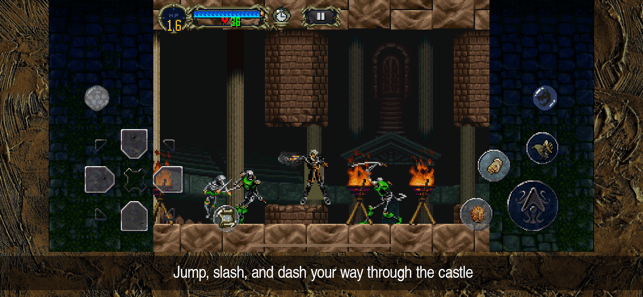
Konami this week surprised everyone with the mobile release of the side-scrolling action-RPG classic “Castlevania: Symphony of the Night,” on both iOS and Android. The game is based on the PSP and PS4 versions of the game, and the release seems to be timed to coincide with the new season of Netflix’s anime adaption. That may not have been at Netflix’s direction, but the streamer has as of late caught on to the power of gaming to lift its shows.
Last year at E3, Netflix detailed a series of gaming initiatives, including integrations with partners like Ubisoft, Behavior Interactive, Fortnite and Roblox to support shows like “Stranger Things” and “The Dark Crystal” reboot. The new Castlevania game, now the No. 3 gaming title on the App Store, is a $2.99 download.
Mario Kart Tour
Re-download this. When Nintendo’s racing game Mario Kart Tour launched on mobile last fall, people complained about its lack of multiplayer mode — the feature that really made the game fun. That’s changing on March 8th at 11 p.m. ET/8 p.m. PT, when the game will officially introduce multiplayer mode to all players. The company also says that players will be able to race against others worldwide to raise their grade under rules that change daily in Standard Races and Gold Races. When racing friends or others nearby, Rooms will allow players to pick their speed, item slot number and more.
VSCO
This popular photo editing app among Gen Zers this week received a notable update with the addition of a new video creation and editing tool called Montage. The new tool allows creators to tell longer video stories involving scenes, where they can even stack and layer one or more videos, photos, colors and shapes to create a collage-like finished product. Montage is available to VSCO’s paying members only. Free users can test it out but can’t save their videos.
